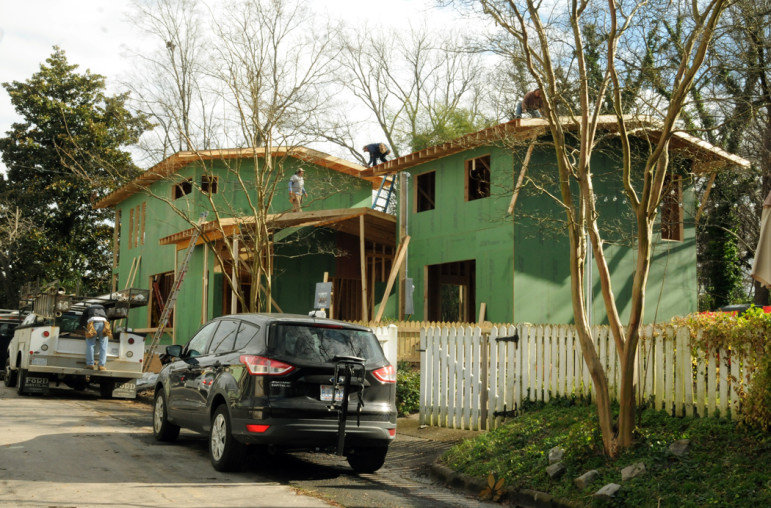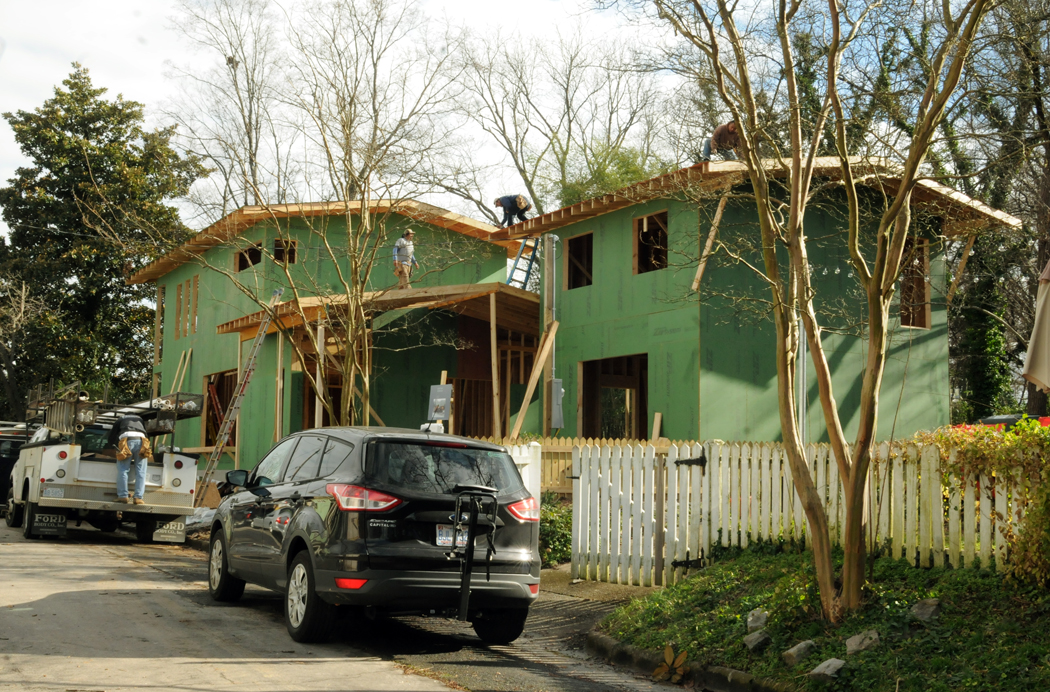Construction will cease on a controversial house in Oakwood after the Board of Adjustment voted that the modernist design does not fit in with the surrounding historic district.
The board finalized its decision Monday to reverse a Certificate of Appropriateness that was given to prominent Raleigh architect Louis Cherry to build the house on Euclid Street. The board voted 3 to 2 in March in favor of reversing the decision, which was made by the Raleigh Historic Development Commission in September.
Cherry and his wife Marsha Gordon could appeal the board’s decision to Wake County superior court, file another application for another certificate of appropriateness, or do both.

Karen Tam / Raleigh Public Record
Work will cease on this project at 516 Euclid St. in the Oakwood neighborhood.
“What they will do, I don’t know,” said their attorney, Nick Fountain, after the meeting. He added that Cherry and Gordon are out of state and he hasn’t yet spoken with his clients.
The house on Euclid Street is under construction, but building will have to stop now that the Certificate of Adjustment has been overturned.
Contradicting earlier reports, Fountain said that Cherry received his Certificate of Appropriateness in September and applied for building permits and broke ground in October.
Opposing neighbor Gail Weisner filed a notice that she intended to appeal the Certificate in September and made a formal appeal in November. Fountain said that Cherry found out in December that he his project might be at risk.
“He didn’t know that and nobody told him it would be that way,” he said.
The Board also denied Cherry’s request to throw out the decision because it didn’t comply with city code.
Fountain argued that because the original certificate of appropriateness application was filed in August, it would fall under the original city code, not the Unified Development Ordinance, which went into effect in September.
He also argued that the decision required a four-fifths vote, meaning it needed at least four votes in favor to be approved.
The Board’s counsel, John Silverstein, said that in this case state law supersedes city law, so neither the old city code or the Unified Development Ordinance would apply.
Silverstein also cited another state law that states that a simple majority was also appropriate in this case.
The City’s Side
While the city doesn’t have a direct relation to the Board’s case, Deputy City Attorney Dottie Leapley voiced concerns with some procedural processes of the decision.
She argued that the Board’s decision should have included a decision that Weisner had standing to appeal the case and what those reasons were. Leapley also said that when looking at the neighborhood for evidence during their deliberations, the Board should have looked at the entire district and not just parts of it.
Leapley said that the city wasn’t arguing for or against the merits of the project, but wanted to relay city concerns about the process.
She added that it was very rare for the city to get involved with these types of cases, but it does happen on occasion.
